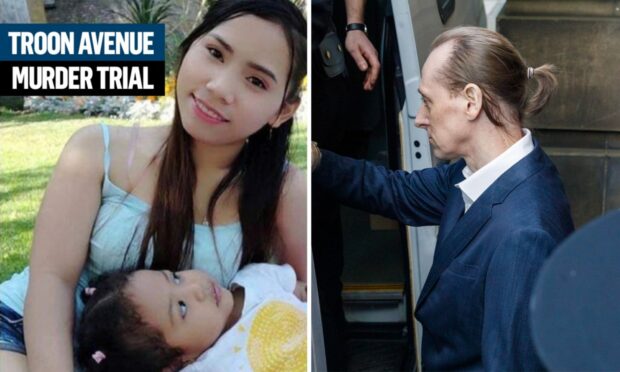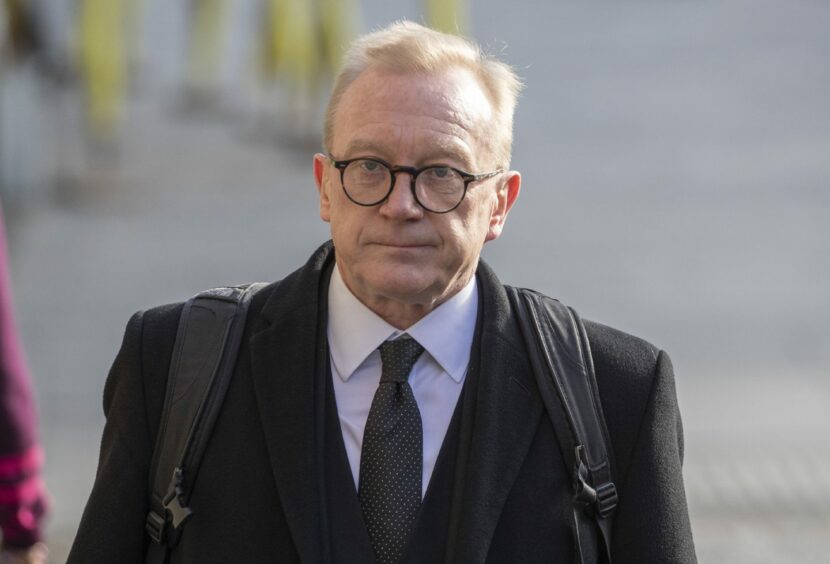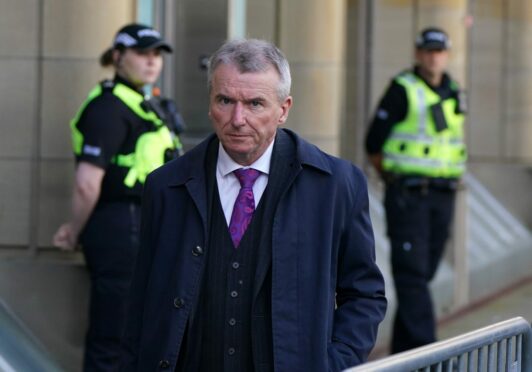A jury has been directed to find killer Andrew Innes guilty of murdering Bennylyn Burke and her two-year-old daughter Jellica.
Lord Beckett said evidence against the 52-year-old app designer did not support Innes’ special defence he acted with diminished responsibility.
He explained the only expert witness who could speak of Aberdeen University graduate Innes’ mental state had said there was “no basis” he was in the grip of steroid-induced psychosis.
“In relation to charges one and two, you are bound to find the accused guilty of murder,” he told the jury.
The trial at the High Court in Edinburgh heard closing speeches on Monday morning.
It followed four days of often harrowing evidence, including testimony from Innes himself and a recorded interview from his alleged rape victim.
Innes did not deny killing Mrs Burke and Jellica but claimed he acted with diminished responsibility and without criminal responsibility.
He continues to deny the rape and sexual abuse of another child at his Troon Avenue home.
Innes further denies inducing Jellica to perform a sex act on him and that he attempted to defeat the ends of justice.
Prosecution
Prosecutor Alex Prentice KC told jurors: “On March 5 2021, Constables Gavin Burns and Rhianne Brogan attended at 21 Troon Avenue, Dundee, to make enquiries about the disappearance of Bennylyn Burke and Jellica.
“At that time, they would not have contemplated the awful secrets that that house kept.”
Mr Prentice said the police did not accept Innes’ account of events.
“They sensed something wasn’t right and they were correct.”
In his 30-minute summary, Mr Prentice said: “I suggest that this was a deliberate killing.
“The nature of this killing is sufficient for you to return a verdict of murder.”
Mr Prentice said that if it had not been for the intervention of police, the alleged crimes may never have been detected.
He said Innes acted “to cover up his gruesome conduct”.
Addressing the allegations of rape and sexual abuse, prosecutor asked jurors: “Do you think the other child incorporate details such as handcuffs and a sock over her mouth to create a false narrative?
“Or did you think she was credible and reliable, trying her best to explain what happened?”
He said that the girl’s DNA on a kilt sock was “powerful evidence” and noted both Innes and the child tested positive for chlamydia.
Mr Prentice said the evidence presents “compelling, convincing and overwhelming” case against the accused.
Defence
Defence advocate Brian McConnachie argued the Crown had not proved the case against his client beyond a reasonable doubt.
He suggested that there may be alternative explanations for the DNA findings.
Mr McConnachie, who spoke for 18 minutes, urged the jury to “put aside any prejudices, preconceptions, shock, disgust or sympathy and concentrate on the facts.”
He said: “You have had to listen to harrowing evidence that you would rather not have heard.”
But he said there would have been “a lot more” if his client had not accepted a series of facts – including that he killed Mrs Burke and her daughter.
He also said that Innes’ Autism Spectrum Disorder may have “explained his presentation while giving evidence.”
Mr McConnachie added: “Mr Innes said to you that (the alleged rape victim) was not being truthful and he explained to you that she was telling lies.
“You will have to decide what you make of this.”
He said her description that her attacker had “black hair and black eyes” did not match his client.
“At the end of the day, you will decide if Andrew Innes deserves to face the punishment of the court,” he said.
“You have the power and with that power comes significant responsibility.”
The trial continues.


